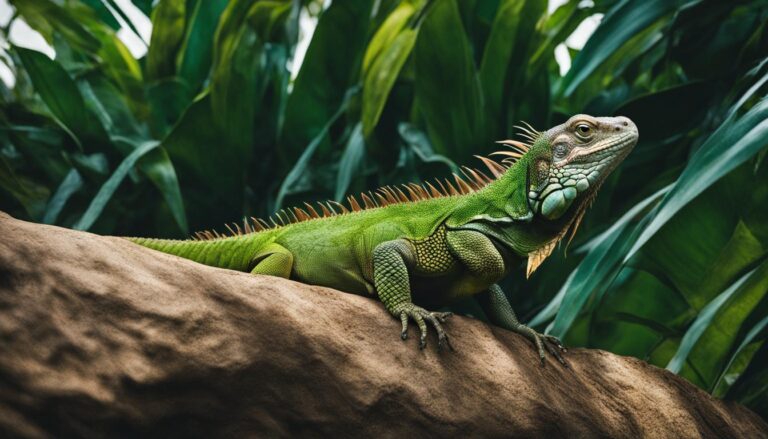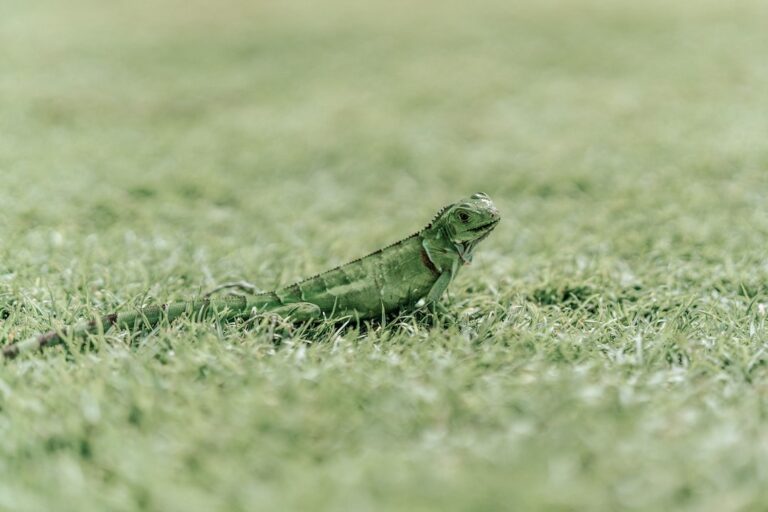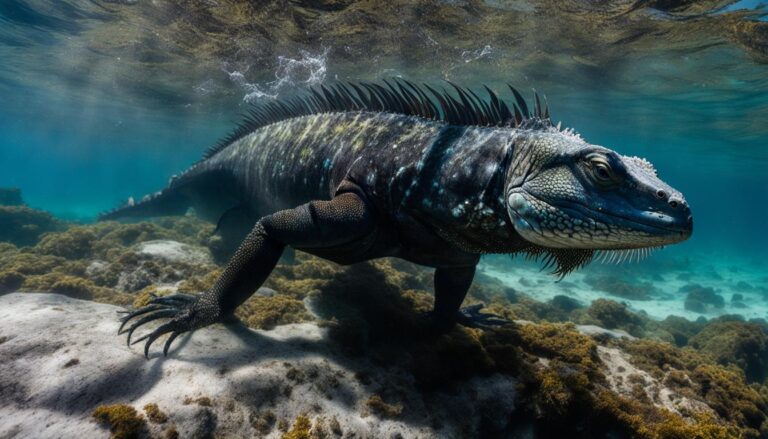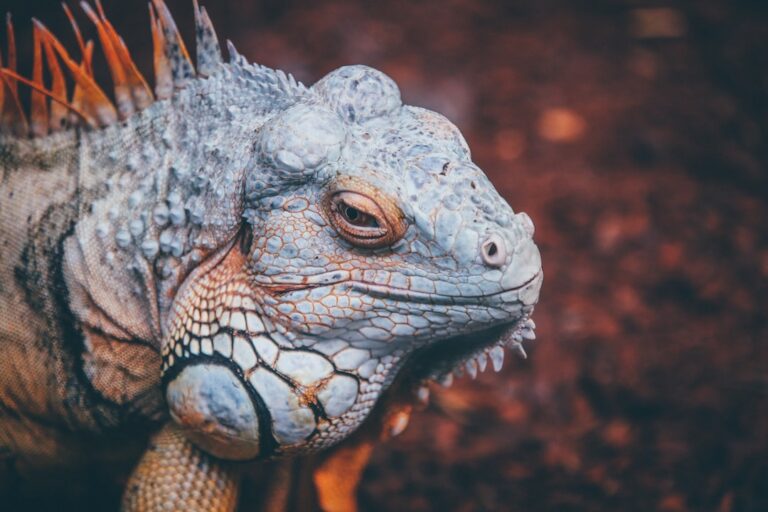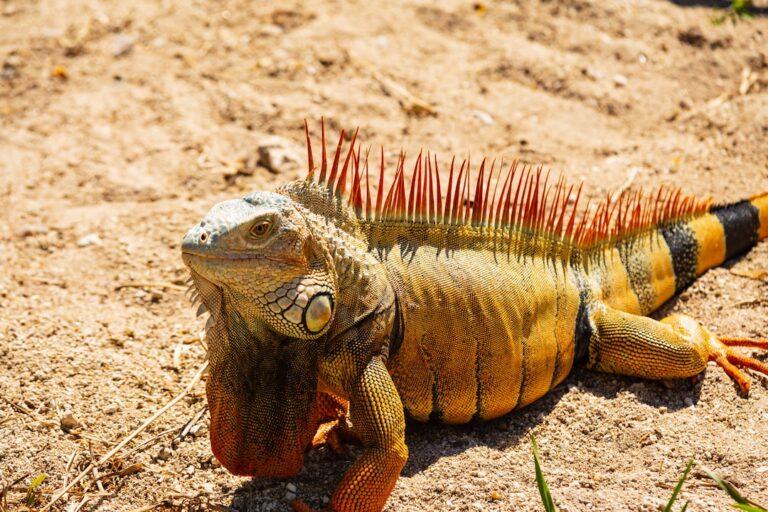Do Iguanas Poop In Pools?
One of the most peculiar problems that pool owners face is the issue of iguanas pooping in their pools. While it may seem like a minor inconvenience, it is important to understand the problem and find solutions to prevent it from happening. Not only can iguana poop be unsightly and unpleasant to clean up, but it can also pose health and safety risks to humans. In this article, we will explore the reasons why iguanas are attracted to pools, the risks associated with their poop, and provide tips on how to prevent them from entering your pool.
Table of Contents
Iguanas and Their Habitat: Understanding their Natural Environment
Iguanas are large lizards that are native to Central and South America. They are known for their distinctive appearance, with their long tails, spiky crests, and vibrant colors. In their natural habitat, iguanas live in tropical rainforests and spend most of their time in trees or on the ground. They are excellent swimmers and are often found near bodies of water such as rivers, lakes, and ponds.
The reason why iguanas may be attracted to pools is because they provide a source of water and a place to cool off. In their natural environment, iguanas rely on water for hydration and thermoregulation. They may see a pool as a convenient alternative to natural bodies of water, especially in urban areas where access to water sources may be limited. Additionally, the warm temperature of the pool water can be appealing to iguanas seeking relief from the heat.
Iguanas and their Digestive System: How it Works
To understand why iguana poop can be harmful to humans, it is important to understand how their digestive system works. Iguanas are herbivores, which means they primarily eat plants. Their digestive system is designed to break down and extract nutrients from plant material. Unlike humans, iguanas have a specialized organ called the cecum, which helps them digest fibrous plant matter.
When iguanas poop, their waste contains high levels of bacteria and parasites that are naturally present in their digestive system. While these bacteria and parasites may not be harmful to iguanas, they can pose health risks to humans. If ingested or if they come into contact with open wounds or mucous membranes, they can cause infections and other illnesses.
The Risks of Iguana Poop in Pools: Health and Safety Concerns
Exposure to iguana poop in pools can pose several health risks to humans. The bacteria and parasites present in the poop can cause gastrointestinal infections, skin infections, and respiratory illnesses. Children, the elderly, and individuals with weakened immune systems are particularly vulnerable to these risks.
In addition to the health risks, there are also safety concerns related to slipping on iguana poop in and around the pool. Iguana poop is often slimy and can create a slippery surface, increasing the risk of accidents and injuries. It is important to clean up any iguana poop promptly to ensure the safety of pool users.
Common Misconceptions about Iguana Poop in Pools: Debunking Myths
There are several common misconceptions about iguana poop in pools that need to be addressed. One common myth is that chlorine in the pool water will kill any bacteria or parasites present in the poop. While chlorine can help disinfect the water, it may not be enough to completely eliminate all harmful microorganisms. Proper cleaning and disinfection are still necessary to ensure the safety of the pool.
Another misconception is that iguana poop is harmless as long as it is not ingested. While ingesting iguana poop is certainly a risk factor, it is not the only way that bacteria and parasites can enter the body. Contact with open wounds or mucous membranes can also lead to infections. It is important to take precautions and avoid direct contact with iguana poop.
How to Prevent Iguanas from Entering Your Pool: Tips and Tricks
Preventing iguanas from entering your pool area can be challenging, but there are several tips and tricks that can help. One effective method is to install a fence or barrier around your pool to keep iguanas out. Make sure the fence is tall enough and has no gaps that iguanas can squeeze through. You can also use deterrents such as motion-activated sprinklers or ultrasonic devices that emit high-frequency sounds that are unpleasant to iguanas.
Another way to make your pool less attractive to iguanas is to remove any potential food sources from your yard. Iguanas are attracted to plants such as hibiscus, bougainvillea, and fruit trees. By removing these plants or using deterrents such as mesh netting or repellent sprays, you can reduce the likelihood of iguanas visiting your pool area.
What to do if an Iguana Poops in Your Pool: Cleaning and Disinfecting
If an iguana poops in your pool, it is important to clean and disinfect the affected area promptly. Start by using a pool skimmer or net to remove any solid waste from the water. Then, use a pool vacuum or brush to clean the bottom of the pool. Once the poop has been removed, you can use a chlorine-based disinfectant to kill any remaining bacteria or parasites.
It is important to follow the manufacturer’s instructions when using disinfectants and to wear protective gloves and eyewear. After disinfecting the pool, make sure to rinse the area thoroughly with clean water before allowing anyone to swim in the pool. Regular testing of the pool water and maintaining proper chlorine levels can also help prevent the spread of bacteria and parasites.
The Importance of Proper Pool Maintenance: Keeping Your Pool Clean and Safe
Proper pool maintenance is essential for keeping your pool clean and safe for swimming. Regularly cleaning the pool, checking and adjusting chemical levels, and maintaining the filtration system are all important tasks that should be done on a regular basis. This not only helps prevent the buildup of bacteria and algae but also ensures that the pool water is properly balanced and safe for swimming.
In addition to regular maintenance, it is also important to address any issues that may attract iguanas to your pool area. This includes removing any fallen fruit or debris from the pool and surrounding area, as well as trimming back any plants or trees that may provide a convenient pathway for iguanas to access the pool.
Legal Implications of Iguana Poop in Pools: Understanding Your Responsibilities
It is important to be aware of the legal responsibilities related to iguana poop in pools. In some areas, there may be local laws or regulations that require pool owners to take measures to prevent wildlife from entering their pools. Failure to comply with these laws can result in fines or other penalties.
It is also important to consider the ethical implications of our actions towards wildlife. While it may be frustrating to deal with iguana poop in pools, it is important to remember that we are encroaching on their natural habitat. By taking steps to prevent iguanas from entering our pools, we can coexist with wildlife in a respectful and responsible manner.
Enjoying Your Pool While Respecting the Wildlife Around You
In conclusion, dealing with iguana poop in pools can be a frustrating problem for pool owners. However, by understanding the reasons why iguanas are attracted to pools, the risks associated with their poop, and implementing preventive measures, we can minimize the occurrence of this issue. It is important to remember that we share our environment with wildlife and should strive to coexist in a way that respects their natural habitat. By enjoying our pools while also being mindful of the wildlife around us, we can create a harmonious balance between humans and nature.
If you’re curious about the fascinating world of reptiles, you might be interested in learning more about chameleons. Did you know that chameleons have the ability to blink? Find out more about this unique reptile behavior in our article, “Do Chameleons Blink?“. Discover the secrets behind their mesmerizing eyes and how blinking plays a crucial role in their survival.


